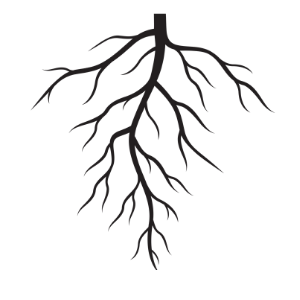Vitamin A: Helps the glands on your scalp produce oil, which moisturizes your scalp and hair to keep it healthy.
Vitamin B5 (Pantothenic acid): Increases the flexibility of your hair and blood flow to your scalp, strengthening the hair follicles.
Vitamin B12: Produces oxygen-rich blood cells that nourish the hair follicles.
Vitamin C: Helps produce collagen, which makes it easier for your body to absorb iron from your diet and prevents hair breakage.
Vitamin D3: Creates new hair follicles.
Vitamin E: Contains antioxidants that improve the health of your scalp and increase hair strength, while reducing cell damage.
Biotin (Vitamin B): Stimulates hair growth and strengthens the hair. It is essential for the production of a hair protein called keratin.
Omega 3: Fights inflammation that causes hair shedding.
Folate (Folic Acid): Responsible for healthy cell growth and speeds up the production of cells in the body.
Iron: Provides red blood cells to carry oxygen to the roots of the hair.
Protein: Makes up each hair strand and is the building block of hair.
Selenium: Kills fungus and dandruff on the scalp and helps regulate hair growth.
Zinc: Repairs hair tissue and ensures that the oil glands around the follicles are working properly.
Vitamins
hair Maintenance
Use silk pillowcases/satin lined hats & head wraps - cotton pillowcases strips natural oils/moisture out causing dryness & breakage
Protective styling - refrain from manipulating your hair everyday, single braids or twists once a month
Use a microfiber towel - less friction on hair strands, maintains moisture, prevents snags, traps more dirt, limits frizz
Weekly deep conditions - maintains product absorption, moisture & softness
Protein - ALWAYS follow up with a deep condition or moisturizer to balance out the pH, look out for hydrolyzed wheat & soy protein as they are small enough to enter the hair shaft and get blow the surface instead of coating the strands
Use indirect heat - hot oil treatments, hot head cap, steamer, plastic cap + hooded drier
Shampoos - Know when to use a clarifying shampoo v a hydrating/moisturizing shampoo
Hair Masks & Rinses - Aztec clay or rhassoul clay + rosewater or ACV, rice water rinse, green tea/black tea rinse
Water - Warm water opens cuticles, remove buildup, creates frizz/dryness while Cool water seals in moisture & increases shine
Consistency - Create a hair routine/hair day, use leave in conditioners, moisturize daily, do daily scalp massages, seal your hair with oil, trim every 3-4 months
Use a water based moisturizer
Know the difference between moisture based and protein based products
GOOD ALCOHOLS
Cetyl alcohol
Cetearyl alcohol
Stearyl alcohol
Lauryl alcohol
Behenyl alcohol
Lanolin Alcohol
Bad ALCOHOLS
Isopropyl alcohol
Ethanol
Ethyl alcohol
Propanol alcohol
Alcohol denatured
Propyl alcohol
SD alcohol 40
Benzoyl alcohol
1. Take care of your scalp: The health of your hair starts with a healthy scalp. Neglecting the scalp can lead to build-up and hinder hair growth.
2. Moisturize the ends of your hair: The ends of your hair are prone to shedding and knots. Taking care of them will prevent unnecessary breakage further up the hair.
3. Keep your hair strands moisturized: Lack of moisture and damage from the environment can affect how long your hair can grow.
4. Detangle your hair after softening it: Start by using your fingers and then use a detangling tool. Focus on the ends of your hair first.
5. Shampoos: Avoid sulfates and their derivatives. Use a hydrating shampoo. Only use a clarifying shampoo if you use a lot of hair products or if it's been a while since your last clarifying shampoo to remove product buildup. Ayurvedic shampoos are also recommended.
6. Use the Greenhouse effect: Promote hair growth by creating a warm and moist environment using a plastic cap. This technique helps retain moisture in dry hair and stimulates sebum production, which is our hair's natural oil.
Hair Tips
Vocabulary
Antioxidants: These are substances that help maintain collagen in the body and protect hair follicles from damage caused by harmful molecules known as free radicals.
Chlorophyll: It contains essential vitamins like B, D, and E, as well as important minerals like calcium and potassium. It also helps produce melanin in the cells that give color to our hair follicles.
Collagen: This is a protein that is responsible for building the structure of our hair.
Free radicals: These are harmful molecules that can damage our cells, leading to issues like frizzy hair, tangles, loss of shine, and reduced curl retention.
Keratin: It is a type of protein that stimulates dormant hair follicles, encouraging hair growth.
Sebum: It is a natural lubricant produced in the hair follicles that helps moisturize the scalp.
Silica: This is an ingredient found in collagen that is important for having strong and healthy hair.
Sulfate: It is a compound that removes natural oils from the scalp and hair, which can result in breakage and dryness.
Sulfur: This mineral promotes the production of collagen, aiding in the overall health of the hair.




